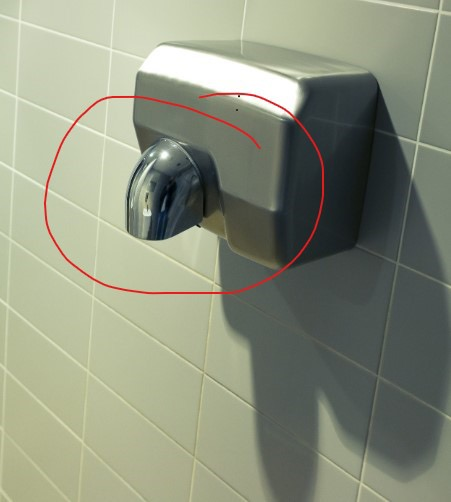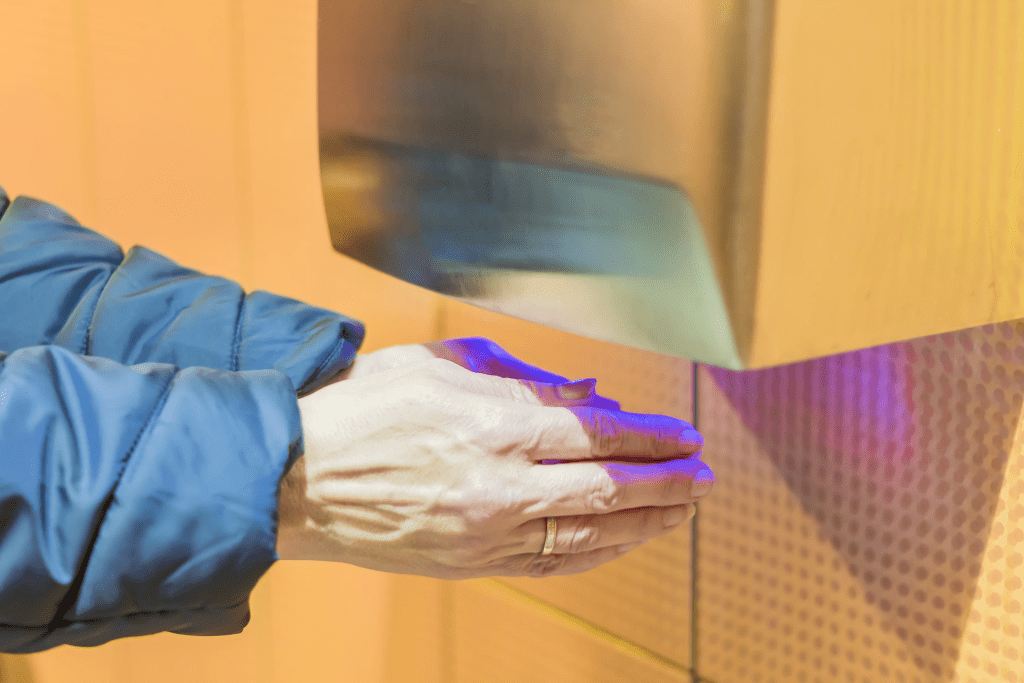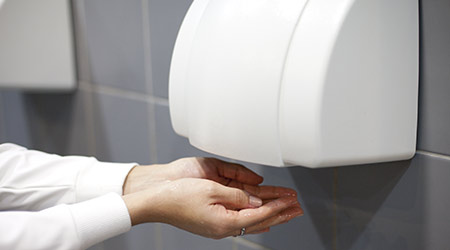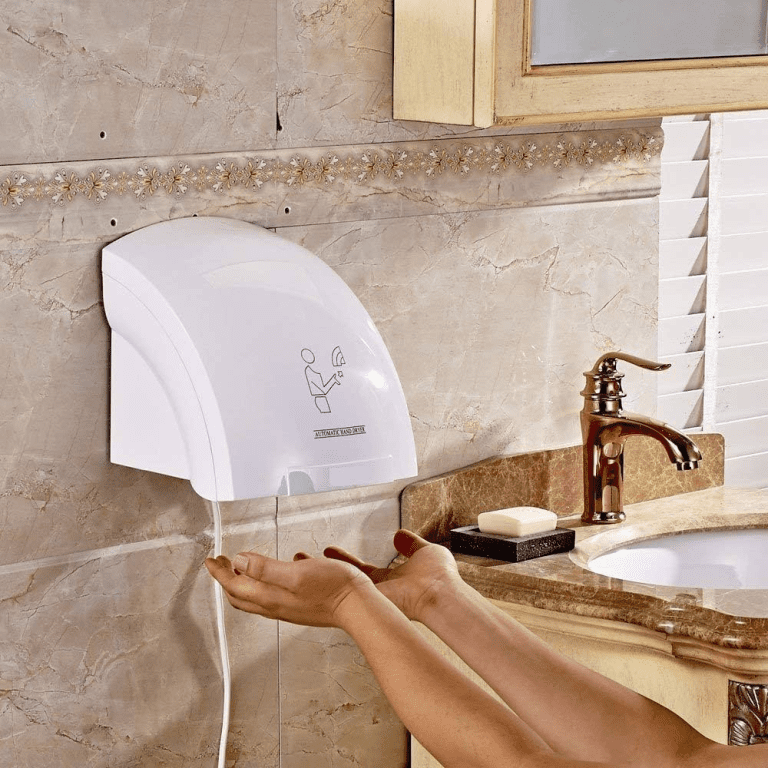Public bathrooms often feel like a necessary evil. We rush in, do what needs to be done, and exit as quickly as possible, all while trying to dodge invisible germs. But here’s a question to ponder: Have you ever considered what’s actually happening inside those seemingly harmless hot-air hand dryers? Recent studies have revealed that these devices may be turning your clean hands into a bacterial battleground. Intrigued? Let’s dive into the unsettling science.
What’s Hiding in the Air? The Science Behind Germ-Laden Hand Dryers

A groundbreaking study by researchers from the University of Connecticut and Quinnipiac University has shed light on the hidden dangers of hot-air hand dryers in public restrooms. While these machines aim to dry hands efficiently, they may also be blasting bacteria into the air—and onto your freshly washed hands.
The researchers conducted an experiment using petri dishes to analyze bacterial growth. Here’s what they found:
- Petri dishes exposed to still bathroom air for two minutes grew just one bacterial colony.
- Petri dishes exposed to hand dryer air for 30 seconds grew as many as 254 bacterial colonies.
Most samples contained between 18 and 60 bacterial colonies after brief exposure to hand dryer air. These staggering results suggest that drying your hands with these devices might undo the benefits of washing them.
Where Do the Germs Come From?
You might wonder: Are these bacteria hiding inside the hand dryers, or are they drawn in from the environment? The researchers had the same question and tested their theory by attaching HEPA filters to the dryers.
Here’s what they discovered:
- HEPA filters reduced bacteria levels by up to 75%.
- The dryers themselves showed minimal contamination on external surfaces, such as vents and plugs.
- Most of the bacteria came from the air inside the bathroom.
The findings indicate that hand dryers aren’t inherently dirty but act as amplifiers for airborne bacteria, sucking in germs and redistributing them at high speeds.
The Gross Truth About the Bathroom “Poop Cloud”
So where do all these airborne germs originate? The answer lies in a phenomenon researchers refer to as the “poop cloud.” Every time you flush a toilet without a lid, it releases a fine aerosol mist of bacteria into the air.
This cloud of microscopic particles can spread up to 65 square feet and linger in the air for hours. In healthcare settings, these aerosols can carry dangerous pathogens, such as Clostridium difficile, which causes severe gastrointestinal infections. While the bacteria found in regular public restrooms are generally less harmful, the idea of walking into an invisible mist of toilet germs is enough to make anyone uneasy.
Paper Towels vs. Hand Dryers: What’s the Safer Option?

Drying your hands after washing them is essential, as damp hands are more likely to transfer germs. However, the method you choose can significantly impact hygiene.
- Paper Towels: These are the gold standard for drying hands. Not only do they absorb water quickly, but they also help remove residual bacteria from the skin. That’s why they’re widely used in hospitals and healthcare facilities.
- Hot-Air Hand Dryers: While they may seem eco-friendly, studies suggest that they disperse germs and increase bacterial exposure. Jet air dryers, in particular, have been linked to higher levels of germ transfer.
If paper towels are available, always opt for them. They’re a safer and more hygienic choice.
How Big Is the Risk? Should You Avoid Public Bathrooms?

Before you swear off public restrooms entirely, let’s put things in perspective. While hand dryers can spread bacteria, the likelihood of contracting a harmful infection from bathroom air is relatively low for healthy individuals.
In fact, direct contact with high-touch surfaces like door handles, faucets, and soap dispensers poses a far greater risk. These are the true germ hotspots in any restroom.
Practical Tips for Staying Germ-Free in Public Bathrooms
With a few simple precautions, you can minimize your exposure to germs and maintain better hygiene:
- Wash your hands thoroughly: Scrub with soap and water for at least 20 seconds. Don’t rush this step—it’s your best defense against germs.
- Choose paper towels: If available, paper towels are the safest option for drying your hands.
- Avoid unnecessary contact: Use a paper towel or your elbow to open doors or turn off faucets.
- Flush with the lid down: If the toilet has a lid, close it before flushing to minimize aerosol dispersion.
- Skip leaning on surfaces: Bathroom counters and walls can harbor germs, so avoid unnecessary contact.
By following these tips, you can significantly reduce your exposure to bacteria without letting paranoia take over.
Why Bathrooms Aren’t the Biggest Health Threat

It’s easy to see public restrooms as germ central, but they’re far from the most significant health threat in your daily life. The air you breathe and the objects you touch in bathrooms are unlikely to cause serious harm compared to person-to-person contact or touching contaminated surfaces like your phone or shopping cart handles.
The key is to focus on hand hygiene. Washing and drying your hands properly is more effective than avoiding public bathrooms altogether.
Conclusion: Rethinking Hand Hygiene in Public Spaces
Next time you step into a public restroom, you’ll probably look at hand dryers with fresh eyes. While they seem like a convenient and eco-friendly option, they might be doing more harm than good by spreading bacteria from the air onto your hands.
Whenever possible, choose paper towels—they’re the safer and more effective way to dry your hands. And don’t forget that staying healthy isn’t about avoiding every germ but about making smart choices and practicing good hygiene.
In a world full of “poop clouds” and bacterial blasts, a little extra care can go a long way. So wash your hands, dry them wisely, and navigate public bathrooms with confidence. After all, peace of mind is worth the extra effort!


